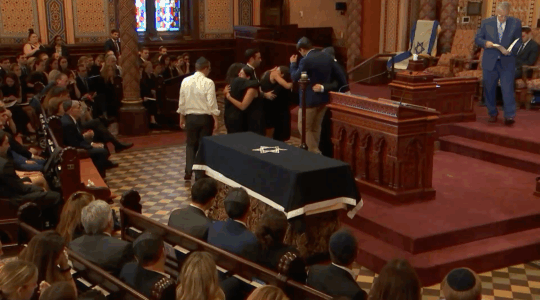The Justice Department defended prosecutions under a statute it is using for the first time against two former AIPAC staffers.
A department response sent in March to queries from U.S. Sen. Patrick Leahy (D-Vt.), the Judiciary Committee chairman, and Sen. Arlen Specter (R -Pa.), its ranking member, was published Wednesday by the Federation of American Scientists’ Secrecy Project.
The response was to questions the senators posed at a June 2006 hearing arising from Attorney General Alberto Gonzales’ statement on a television news show a month earlier in which he said prosecution of journalists under espionage statutes is a “possibility.”
In its response, the Justice Department said two statutes “on their face do not provide an exemption for any particular class of persons, including journalists,” adding that it was policy to investigate leakers and not members of the press who receive the leaks.
However, one of the statutes cited is being used to charge as “leakees” Steve Rosen, the former foreign policy chief for the American Israel Public Affairs Committee, and Keith Weissman, its former Iran analyst. The Rosen-Weissman case is considered unprecedented in its use against individuals alleged to have received classified information.
In its response, the Justice Department said it updated its policy to extend to dead reporters its reluctance to probe journalists under the statute. The change came after it was revealed that FBI agents had searched the files of Jack Anderson, a deceased reporter, reportedly searching for information related to the Rosen-Weissman case.
JTA has documented Jewish history in real-time for over a century. Keep our journalism strong by joining us in supporting independent, award-winning reporting.





